BMW X1 vs Renault Captur – Which one offers the better deal?
Both models have their strengths – but which one suits you more?
Compare performance, efficiency, price and space directly: BMW X1 or Renault Captur?
Costs and Efficiency:
Price and efficiency are key factors when choosing a car – and this is often where the real differences emerge.
Renault Captur has a decisively advantage in terms of price – it starts at 21100 £, while the BMW X1 costs 38200 £. That’s a price difference of around 17100 £.
Fuel consumption also shows a difference: BMW X1 manages with 2.50 L and is therefore convincingly more efficient than the Renault Captur with 4.50 L. The difference is about 2 L per 100 km.
Engine and Performance:
Under the bonnet, it becomes clear which model is tuned for sportiness and which one takes the lead when you hit the accelerator.
When it comes to engine power, the BMW X1 has a decisively edge – offering 326 HP compared to 143 HP. That’s roughly 183 HP more horsepower.
In acceleration from 0 to 100 km/h, the BMW X1 is clearly quicker – completing the sprint in 5.40 s, while the Renault Captur takes 8.90 s. That’s about 3.50 s faster.
In terms of top speed, the BMW X1 performs noticeable better – reaching 250 km/h, while the Renault Captur tops out at 180 km/h. The difference is around 70 km/h.
There’s also a difference in torque: BMW X1 pulls clearly stronger with 477 Nm compared to 265 Nm. That’s about 212 Nm difference.
Space and Everyday Use:
Cabin size, boot volume and payload all play a role in everyday practicality. Here, comfort and flexibility make the difference.
Both vehicles offer seating for 5 people.
In curb weight, Renault Captur is a bit lighter – 1323 kg compared to 1575 kg. The difference is around 252 kg.
In terms of boot space, the BMW X1 offers noticeable more room – 540 L compared to 422 L. That’s a difference of about 118 L.
In maximum load capacity, the BMW X1 performs a bit better – up to 1600 L, which is about 237 L more than the Renault Captur.
When it comes to payload, BMW X1 minimal takes the win – 500 kg compared to 453 kg. That’s a difference of about 47 kg.
Who wins the race?
The BMW X1 proves to be leaves the rival little chance and therefore becomes our DriveDuel Champion!
BMW X1 is the better all-rounder in this comparison.
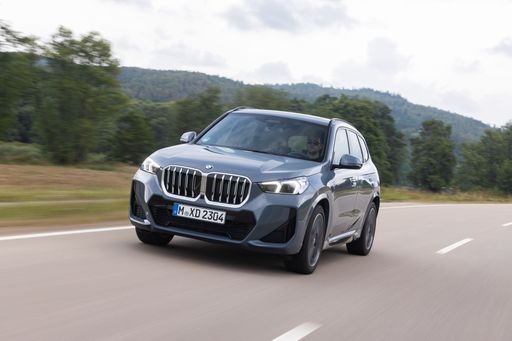 @ BMW Group Press
@ BMW Group Press
BMW X1
BMW X1
The BMW X1 brings a premium feel to compact crossover life, wrapping practical space and agile handling into a tidy, upscale package. It’s ideal for buyers who want BMW driving dynamics without the bulk, offering everyday comfort and a few clever tricks to keep the commute interesting.
details @ BMW Group Press
@ BMW Group Press
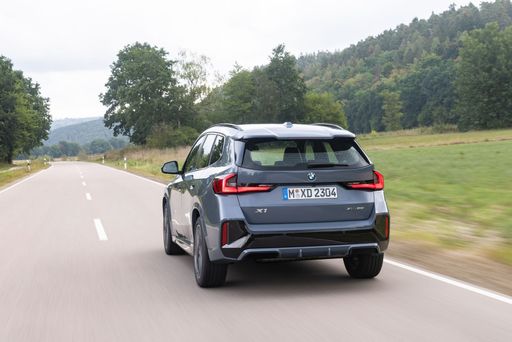 @ BMW Group Press
@ BMW Group Press
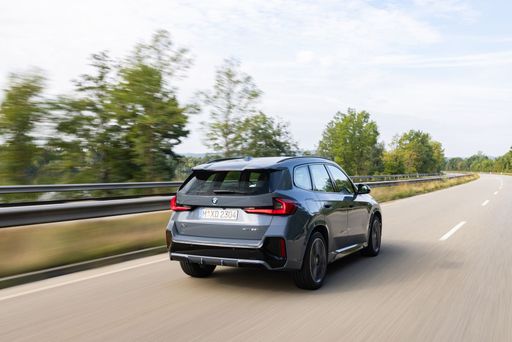 @ BMW Group Press
@ BMW Group Press
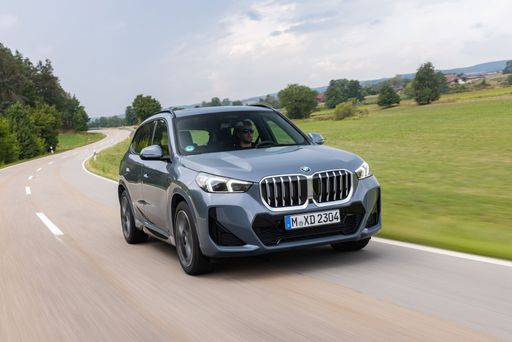 @ BMW Group Press
@ BMW Group Press
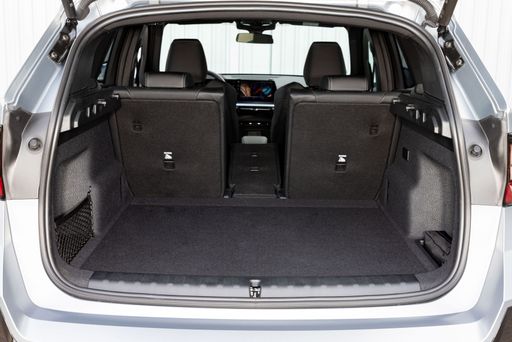 @ BMW Group Press
@ BMW Group Press
Renault Captur
The Renault Captur is a cheeky little crossover that pairs city-friendly agility with a roomy, well-thought-out cabin and enough style to turn heads at the lights. It’s a sensible choice for buyers who want practical versatility and a dash of personality on their daily drives, without taking itself too seriously.
details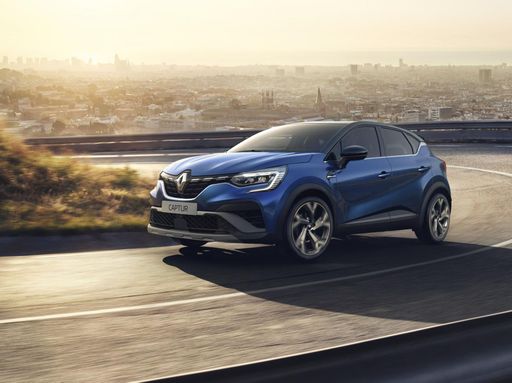 @ Renault Group Media
@ Renault Group Media
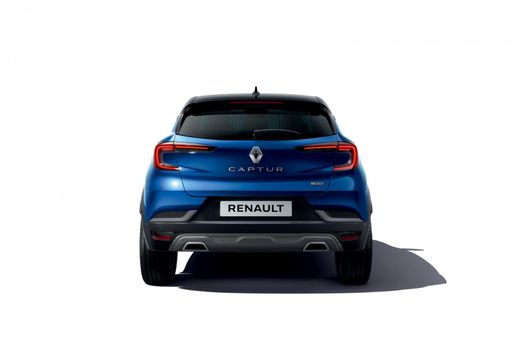 @ Renault Group Media
@ Renault Group Media
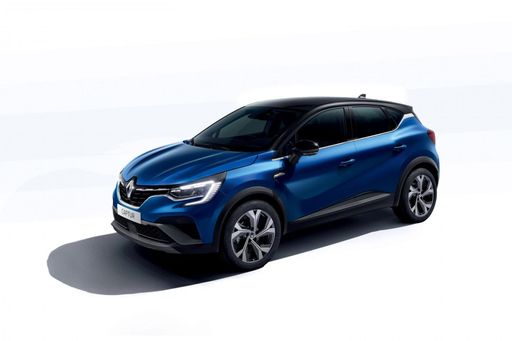 @ Renault Group Media
@ Renault Group Media
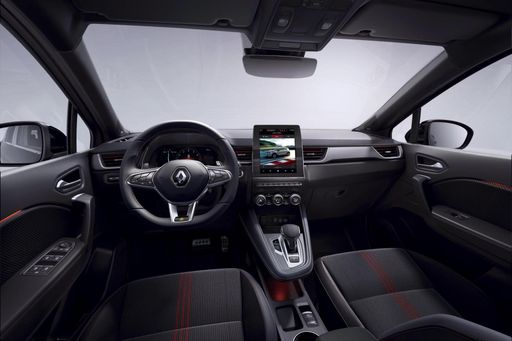 @ Renault Group Media
@ Renault Group Media
 @ BMW Group Press
@ BMW Group Press
|
 @ Renault Group Media
@ Renault Group Media
|
|
|
|
Costs and Consumption |
|
|---|---|
|
Price
38200 - 55500 £
|
Price
21100 - 28300 £
|
|
Consumption L/100km
2.5 - 7.7 L
|
Consumption L/100km
4.5 - 6 L
|
|
Consumption kWh/100km
-
|
Consumption kWh/100km
-
|
|
Electric Range
81 km
|
Electric Range
-
|
|
Battery Capacity
14.20 kWh
|
Battery Capacity
-
|
|
co2
57 - 175 g/km
|
co2
102 - 137 g/km
|
|
Fuel tank capacity
47 - 54 L
|
Fuel tank capacity
48 L
|
Dimensions and Body |
|
|---|---|
|
Body Type
SUV
|
Body Type
SUV
|
|
Seats
5
|
Seats
5
|
|
Doors
5
|
Doors
5
|
|
Curb weight
1575 - 1935 kg
|
Curb weight
1323 - 1514 kg
|
|
Trunk capacity
490 - 540 L
|
Trunk capacity
326 - 422 L
|
|
Length
4500 - 4505 mm
|
Length
4239 mm
|
|
Width
1845 mm
|
Width
1797 mm
|
|
Height
1622 - 1642 mm
|
Height
1575 mm
|
|
Max trunk capacity
1495 - 1600 L
|
Max trunk capacity
1276 - 1363 L
|
|
Payload
490 - 500 kg
|
Payload
376 - 453 kg
|
Engine and Performance |
|
|---|---|
|
Engine Type
Diesel MHEV, Petrol MHEV, Petrol, Diesel, Plugin Hybrid
|
Engine Type
Full Hybrid, Petrol, Petrol MHEV
|
|
Transmission
Automatic
|
Transmission
Automatic, Manuel
|
|
Transmission Detail
Dual-Clutch Automatic
|
Transmission Detail
Automatic Gearbox, Manual Gearbox, Dual-Clutch Automatic
|
|
Drive Type
Front-Wheel Drive, All-Wheel Drive
|
Drive Type
Front-Wheel Drive
|
|
Power HP
136 - 326 HP
|
Power HP
115 - 143 HP
|
|
Acceleration 0-100km/h
5.4 - 9.2 s
|
Acceleration 0-100km/h
8.9 - 12.3 s
|
|
Max Speed
190 - 250 km/h
|
Max Speed
180 km/h
|
|
Torque
230 - 477 Nm
|
Torque
160 - 265 Nm
|
|
Number of Cylinders
3 - 4
|
Number of Cylinders
3 - 4
|
|
Power kW
100 - 240 kW
|
Power kW
84 - 116 kW
|
|
Engine capacity
1499 - 1998 cm3
|
Engine capacity
1199 - 1789 cm3
|
General |
|
|---|---|
|
Model Year
2024 - 2025
|
Model Year
2025
|
|
CO2 Efficiency Class
D, E, F, B
|
CO2 Efficiency Class
C, D, E
|
|
Brand
BMW
|
Brand
Renault
|
Is the BMW X1 offered with different drivetrains?
The BMW X1 is offered with Front-Wheel Drive or All-Wheel Drive.
The prices and data displayed are estimates based on German list prices and may vary by country. This information is not legally binding.
